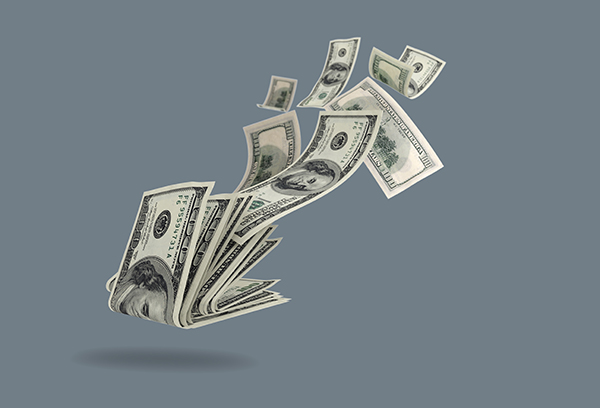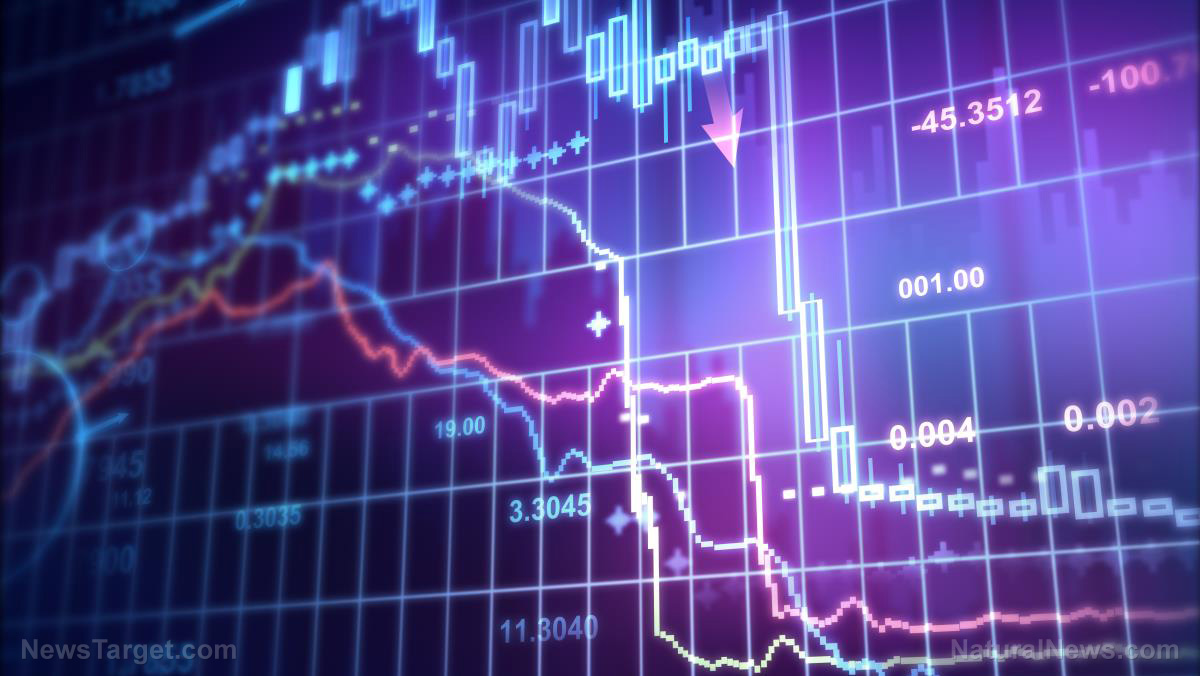Economist: America about to enter next stage of inflation, which will be so much worse
06/23/2022 / By Arsenio Toledo

An expert economist warned that the United States’ inflation crisis is about to enter a new stage and the economy will become even more precarious.
Inflation is already at a 40-year record-high, according to the Department of Labor‘s Consumer Price Index for May. Secretary of the Treasury Janet Yellen is already warning that high inflation is likely to stick with consumers for the rest of the year. This will be combined with a slowdown in American economic activity.
Ross McKitrick, a professor of economics at the University of Guelph in Ontario, Canada, noted that inflation usually comes in several stages – and the next one will make life much worse for everyday Americans. (Related: Expert economist: High inflation could have been avoided if Federal Reserve acted earlier.)
The first stage, according to McKitrick, happens when more and more newly printed money enters the economy.
“It’s at that first stage where you have the money illusion, which means people think they have more money than they do,” said McKitrick, noting that this leads to people spending more. This flood of new money into the market creates a very brief boom in the economy.
“But they don’t actually have more money than when they started,” he added. “What they have is a dilution of the money supply.”
The second stage is when this economic boom slows down and prices start going up due to the increased demand generated by the first stage. People begin to hope that the inflationary period is only short-term.
“People can cope with a lot of things temporarily. If you think, ‘Okay, the price of gas jumped and it will be high for a month or two, and then it will go back to normal,’ nobody’s going to change their behavior in response to that,” said McKitrick.
This, McKitrick noted, is the stage America is currently at. People are starting to relax their previous spending habits, but inflation is still on the rise.
Third stage of inflation to come with massive labor unrest
The third stage occurs when labor markets start adjusting to the new reality. Workers effectively take a massive pay cut due to inflation. This will cause a lot of discomfort among workers, who will start going to their employers demanding relief in the form of higher wages.
Bosses, in turn, will resist demands for higher wages by pointing out that their operating costs have also gone up and their budgets can’t afford to provide higher wages for their workers even if they wanted to.
“And both sides in effect have a genuine case to make that this is not new money, these are not larger profit margins – workers have lost purchasing power.”
As both workers and employers remain at this impasse, workers and unions will start threatening their bosses with strike actions and take very tough stances during bargaining efforts.
“If that kind of ‘wage settlement process’ gets calibrated to the inflation rate, then that becomes a new driver of price increases,” said McKitrick. He called this phenomenon a “wage-price spiral,” and it is similar to what happened during America’s inflation crisis during the 1970s.
If people keep expecting inflation to go up and are able to get pay raises out of their bosses to keep up with the inflation rate, then the inflation crisis won’t actually end. Payroll costs will keep getting taken into account when calculating the final price of products.
“You never get rid of inflation as long as people expect inflation to be there,” said McKitrick.
Learn more about inflation in the United States at Inflation.news.
Watch this episode of “The American Journal” by InfoWars as host Harrison Smith talks about how the economy is collapsing.
This video is from the InfoWars channel on Brighteon.com.
More related articles:
Yellen proposes temporary federal gas tax “holiday” to combat inflation (why not make it PERMANENT?).
INFLATION REPORT: Wholesale prices rose 10.8 percent over the past year.
Surveys: Consumers are saving less and acquiring more debts due to inflation.
Sources include:
Submit a correction >>
Tagged Under:
chaos, collapse, collective bargaining, consumer price index, Department of Labor, economic collapse, economic crisis, economics, economy, employee wages, financial crash, inflation, inflation crisis, labor, labor market, strikes
This article may contain statements that reflect the opinion of the author
RECENT NEWS & ARTICLES
COPYRIGHT © 2020 Debtbomb.news
All content posted on this site is protected under Free Speech. Debtbomb.news is not responsible for content written by contributing authors. The information on this site is provided for educational and entertainment purposes only. It is not intended as a substitute for professional advice of any kind. Debtbomb.news assumes no responsibility for the use or misuse of this material. All trademarks, registered trademarks and service marks mentioned on this site are the property of their respective owners.


















